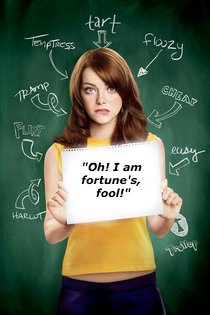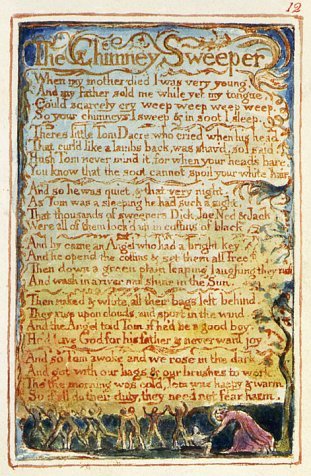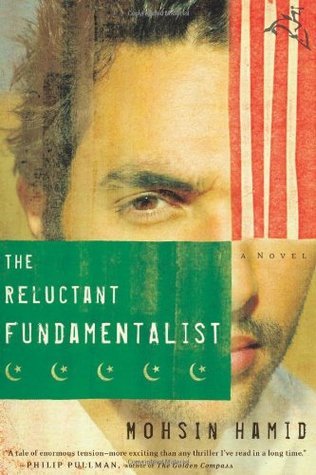Lessons from High School I Desperately Needed to Re-Visit (And I think You Could, Too)
I have the fondest memories from high school - specifically from my Literature class. In fact, almost once a month I find myself reminiscing back to that class, especially when I'm feeling overwhelmed with non-high-school life (which has definitely been the case the past few weeks being back at uni for Semester 2).
Today, I tried to figure out why it's stuck with me, and found myself come some great life lessons that I learnt from each of my 5 Literature texts. I felt they were important, universal, and so relevant right now.
And where better to share them than on Steemit, with you lovely people! I hope you can find a warm and fuzzy in there somewhere, or at least a good book to dig your nose into...

So, without further ado;
Important Lessons from High School I Desperately Needed to Re-Visit (In No Particular Order and With Accompanying Texts, Of Course)...
Lesson Number 1: 'The Collected Stories of Katherine Mansfield' by Katherine Mansfield,
or
"We really do NEED art"

Sometimes, a writer just gets you.
I mean, who would have guessed my spirit-author would have been a wildly capricious, bi-sexual, love-seeking, tuberculosis-having riot from New Zealand in the 1920’s. But that’s Katherine Mansfield for ya.
Mastermind of many deceivingly picturesque but deeply sad short stories, Mansfield’s writing style spoke directly to my heart and stays with me still to this day. Never mind the purpose behind the stories, just the art itself was enough to truly impact me.
She widens my eyes. She makes me hungry. She makes me want to jump up and do something wild, like take a road trip in the middle of the night, or run away to France; just anything romantic or crazy enough to really make me feel… alive.
We need writers and artists like Mansfield in our lives to remind us of that. To yank our heads from the proverbial matrix and scream “HEY! ARE YOU PAYING ATTENTION? ARE YOU HAPPY?”
William Faulkner, a legendary writer and Nobel Laureate, summed up the writer's role perfectly in his 1950 acceptance speech:
“ It is his privilege to help man endure by lifting his heart, by reminding him of the courage and honour and hope and pride and compassion and pity and sacrifice which have been the glory of his past. The poet's voice need not merely be the record of man, it can be one of the props, the pillars to help him endure and prevail. “
We need all of that in our lives, and we ain't all gonna get it from our day job.
Lesson number 2: 'Blake's Poetry and Designs' by William Blake,
or
"But we don't need ALL art"

Sometimes, you just don’t get a writer.
Myself and old Willy Blake just did not mix. I just couldn’t get around his obsession with lambs. But that’s cool. I learnt that in Lit – that some kids are gonna love a text while others will absolutely hate it.
That’s the beauty of life and human experience, but it’s something that’s easy to forget out here in the big bad world where there’s strength in packs.
Listen, you’re not always going to love the same things as your friends, or your co-workers, or your boss, or the rest of society. And that is totally okay – in fact, it’s a great thing. It shows you’re not just here to sip the kool aid.
"If everybody is thinking alike, then somebody isn't thinking." - George S. Patton Jr.
Lesson 3: 'The French Lieutenant's Woman' by John Fowles,
or
"Don't care so much about what you're supposed to do"

Lesson number 3 comes in as a nice addendum to lesson number 2.
We consistently look back in history at snapshots of our time here on Earth as the human race, and cringe at the way we oppressed, or often blatantly excluded, some unfortunate group of people for no real reason.
We know that the all-too-present ‘herd-mentality’ element of society is just that – a large, mindless herd of sheople passively consuming the bullshit they are fed (don’t take that very cynical sentence too much to heart). Unfortunately, for some, this can mean a lot of obstacles and unwarranted hate throughout our lives.
In The French Lieutenant’s Woman, we see a strong woman receive exactly that – judgement, oppression, and hatred because she doesn’t fit into the given lady-mould of her time. In Sarah Woodruff's story, we see the classic unfolding of defiance against society; the good old “Screw you all, I’ll do what I want”, and it’s both an inspiring and plainly necessary idea that we all need to live by.
So, without attempting to trivialize the suffering many of us endure as minorities in today’s world, I want to say to anyone that feels as though their options are marred by what society tells you, that quite frankly, this life is too short to give a damn. I’m a strong believer that if you do you – and I mean really do you – then the universe will give.
It’s never easy swimming against the current, but no one ever made any progress just saying “Yes sir, no sir, three bags full sir”.
Lesson 4: 'The Reluctant Fundamentalist' by Mohsin Hamid,
or
"Seriously, don't judge a book by it's cover"

How many times have we heard that one before? I almost felt bad typing it out, and yet here we are, forced to watch the unfolding of a fear-mongering-led U.S. presidential campaign, symbolic of the very tiresome West-VS-Islam/Terrorism/Any-Nationality-That-Ends-In-‘stan’ world we are all currently living in.
I’m not going to dive into this death-trap of politics, nor am I going to explain the plot of such a great novel (you'll have to read it for yourself).
All I’m going to say is that Hamid not only really challenged any subtle pre-conceived perceptions I had towards people hailing from Islamic states – it made me learn to stop and think before I judged anyone different to me.
We can’t do much about the politics and deeply engendered conflict happening on a large scale right now. And I know I can’t expect either side of this fight to turn around tomorrow and decide to forgive and forget.
But what a terrible shame that now in day-to-day settings we can’t look at some people as who they are, and instead see them as a product of some mainstream TV newsroom’s radicalized racist slur.
Battling bigotry is easier said than done, but just remember that prejudice is a learned trait.
Lesson 5: 'Chinatown' by Roman Polanski,
or
"Don't Fuck with Noah Cross"

Okay, I lied - there's really only four important lessons, I just wanted to bring Chinatown up to say if you haven't already watched this neo-noir classic, GET ON IT.
And seriously, Noah Cross is real creepy...
Hope you enjoyed all! Steemit is kind of my vessel for practicing essay and article writing, so any feedback wouldn't fall on deaf ears :)
Alexa x
I upvote U